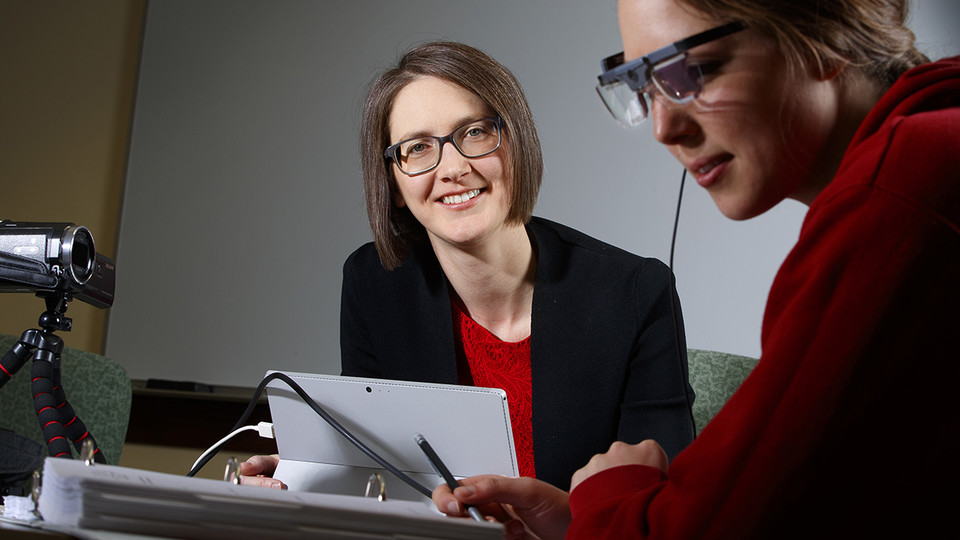
by Gillian Klucas | Research and Economic Development, UNL
Mathematics is one of the most textbook-dependent subjects in school, and much research goes into developing math curricula. Relatively little effort, however, is spent helping K-12 math teachers use textbooks effectively, said Nebraska education researcher Lorraine Males.
To support future teachers in employing math curricula, Males will research how teachers currently approach textbooks. She will use these results to develop teacher education materials for college-level courses, with the goal of better preparing students for future teaching positions.
The assistant professor in the University of Nebraska-Lincoln's College of Education and Human Sciences earned a five-year, nearly $630,000 Faculty Early Career Development Program award from the National Science Foundation to conduct the research.
"The point of a textbook is to help students learn something," Males said. "But if the teacher isn't using the textbook as intended, then that isn't going to help students learn."
In addition, math curricula have been moving toward more reasoning-based instruction, she said. Yet most college students were raised on traditional textbooks. Supporting teachers in using the new curricula is especially important, particularly for educators just starting out.
Males and her team will first research how teachers currently use textbooks to develop lesson plans, answering such questions as what teachers attend to on the page, how they interpret the material and the decisions they make in response to those interpretations.
To clarify this, Males will interview teachers while they are actively planning a classroom lesson and ask them to explain their rationale as they move through the planning process. With eye-tracking glasses she previously obtained through a grant from the nonprofit CPM Educational Program, Males will also be able to observe exactly how teachers visually approach the material, helping to inform the interview data.
In partnership with Lincoln Public Schools, she'll recruit eight mathematics teachers from middle and high schools. In addition to studying the teachers' approach to lesson planning, she and her team will observe them enacting the lessons in the classroom.
From the research results, Males will develop college-level instructional materials to prepare future teachers to use math textbooks effectively. She'll initially use the materials in the university's education courses.
To evaluate the materials' effectiveness, Males and her team will follow up with former students as they begin their teaching careers in Nebraska classrooms. This interaction also will serve to support new teachers, providing assistance in what can be an overwhelming first few years in a teaching career, she said. The additional support also could improve new teacher retention throughout Nebraska.
"Trying to figure out how I can help, as a university instructor, prepare my teachers to do this work is very important," said Males, a former middle and high school math teacher. During her time in the classroom, she developed a personal interest in using curricula well and uses that experience to inform her research and instruct her college students.
Once the materials have been fully developed and assessed, Males will make them available nationally.
The prestigious NSF grant, known as a CAREER award, supports pre-tenure faculty who exemplify the role of teacher-scholars through outstanding research, excellent education and the integration of education and research.